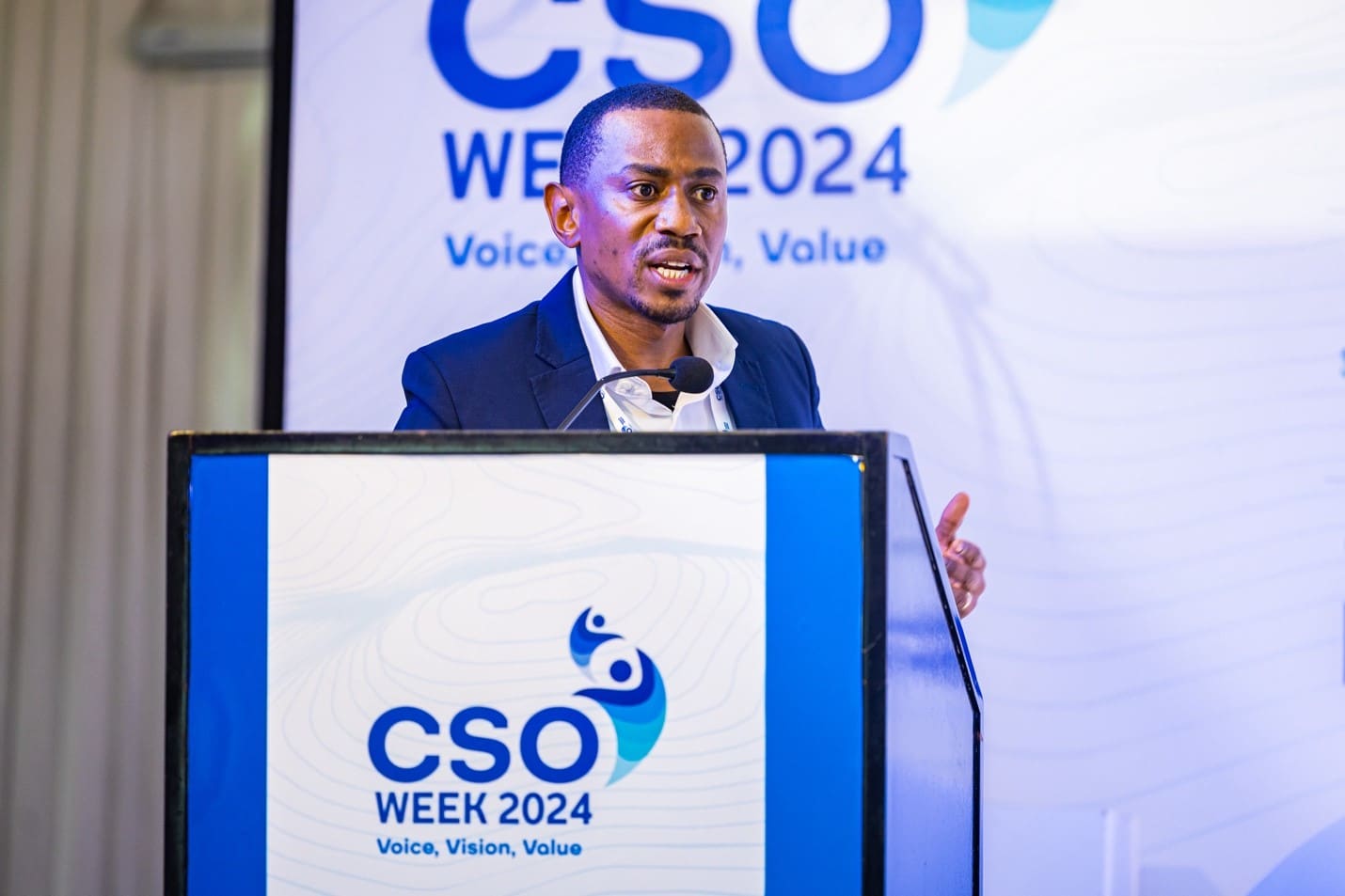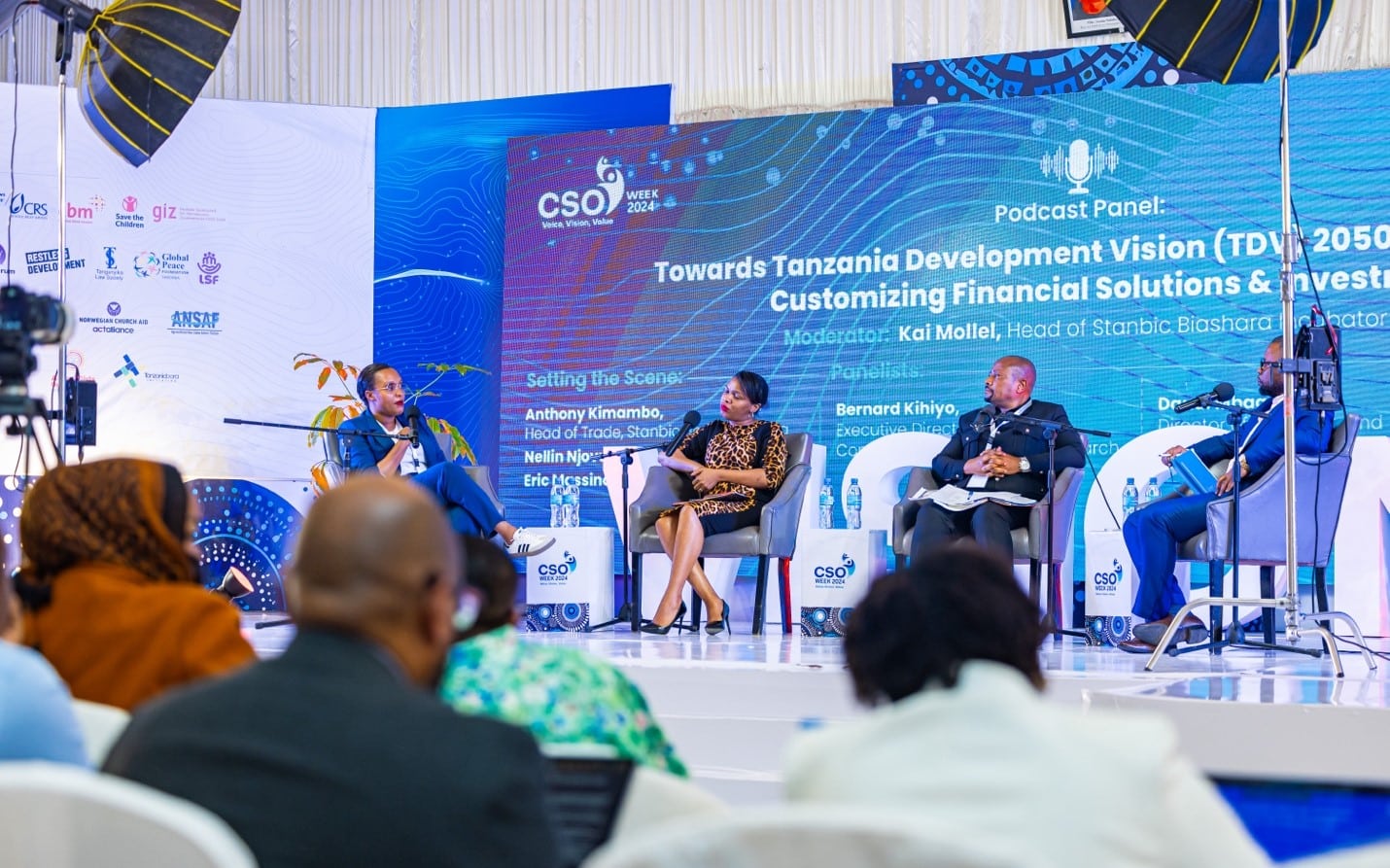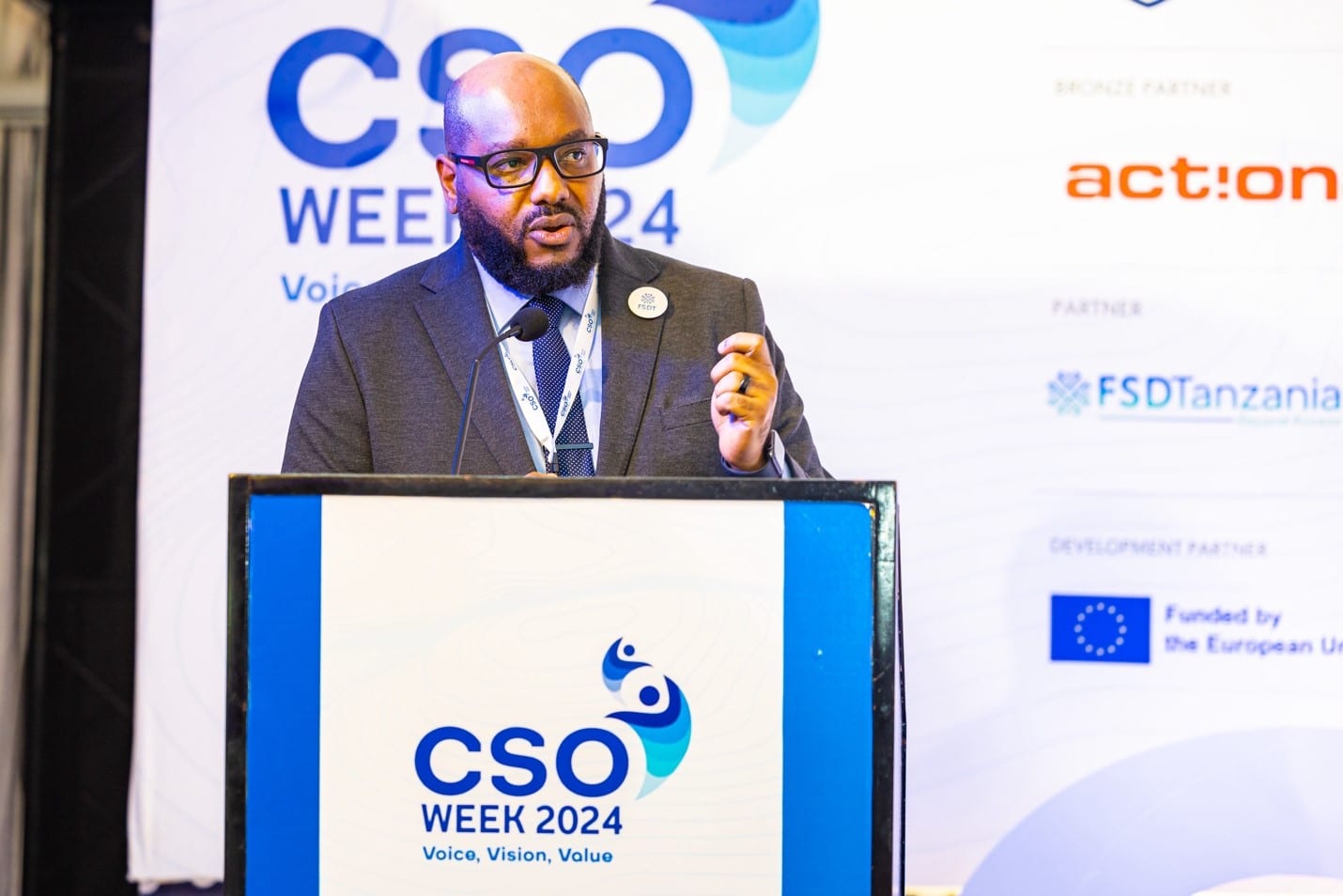VISION 2050
The Last Frontier: Unlocking Tanzanian MSMEs’ Potential for Effective Cross-Border Trade
By Bernie Mshana, Knowledge Management Specialist-FSDT

The last frontier in realizing Tanzania’s vision of becoming an upper middle-income nation with a competitive yet inclusive, environmentally responsible, and socially sustainable economy is unlocking the potential of Micro, Small, and Medium Enterprises (MSMEs). Success in this undertaking means improving MSMEs’ ability to produce quality and competitively priced goods and services and enhancing their ability to provide quality paying jobs to Tanzania’s emerging middle class. At this point, Tanzanian MSMEs shall need to leverage on regional integration and international trade opportunities to tap into a sizable middle class and produce at scale. Yet, unlocking MSMEs’ potential for effective cross-border trade is hinged upon our ability to deeply understand their needs and offer inclusive and sustainable solutions and investments.
On Thursday 12th September at the CSO Week 2024, Stanbic Bank Tanzania and the Financial Sector Deepening Tanzania (FSDT) hosted a joint session to present research-backed insights into the MSME sector and viable measures to fuel MSME growth, enhance cross-border trade, and increase financial inclusion.
The session, “Towards Tanzania Development Vision (TDV) 2050 Sustainability: Customizing Financial Solutions & Investments,” began with a joint presentation on Tanzania’s cross-border trade landscape.

Mr. Anthony Kimambo, Head of Trade at Stanbic Bank Tanzania, laid the foundation for the discussion by presenting key findings from the Stanbic Bank Africa Trade Barometer (SB ATB) 2023 Tanzania report. The report, which highlights the views of Tanzanian cross-border traders, the environment they operate in, their trade behavior, trading activities, and their perceptions on trade, found five persistent constraints undermining Tanzanian MSMEs’ capacity to trade with the rest of Africa and the world: tariffs, prohibitive custom regulations, poor road infrastructure, erratic power supply, and limited access to finance.
“We might need to ask ourselves, what can financial service providers do to address these constraints? At Stanbic Bank, we look at these constraints as a challenge and opportunity to go beyond funding; there are other ways to enable growth, it is not enough to provide capital,” said Mr. Kimambo.
He further explained that Stanbic Bank’s strategy for supporting cross-border traders references comprehensive research. Mr. Kimambo cited three key strategies Stanbic Bank employs in support of MSMEs, including:
- Easing MSMEs’ access to formal financial products and services. A business can register for the Stanbic Mpambanaji Account with only a National Identification Number (NIN) and Taxpayer Identification Number (TIN).
- Stanbic Bank Business Incubator, a knowledge-sharing and capacity-building program equipping SMEs, particularly women and youth, with business development and financial management skills to compete and thrive in foreign trade markets.
- Financial credit products Stanbic offers to provide capital to MSMEs, including Distributors Financing, Invoice Discounting, Purchase Order Financing, Contract Financing, and loans to traders through Structured Trade Commodity Finance (STCF).
Ms. Nellin Njovu, FSDT’s Research and Insights Manager, followed up with a presentation on the size and composition of Tanzania’s MSME sector. Citing insights from the MSME Survey report from 2012, Ms. Njovu stated that most (97%) of Tanzanian businesses are MSMEs, with the majority being micro-enterprises owned and run by a single individual.
She called for support for micro-enterprise growth to mitigate such businesses’ lack of going concern. She said, “Micro-enterprises stay alive or die with the single owner. Women-owned businesses are even more precarious because in addition to the general challenges that face MSMEs, women contend with gender norms, struggle to balance business, care work, and domestic labor, and are more likely to divert funds from their business to home emergencies.”
Ms. Njovu continued, “The regional and continental trade agreements provide a great opportunity to expand the market for Tanzanian MSMEs products, increase local production, and generate more jobs, which can amplify the growth of Tanzania’s middle class.”
She concluded that the financial sector has a significant role in overcoming most of these barriers and facilitating real sector development and economic growth. Custom supply chain financing solutions have the potential to facilitate a more inclusive and sustainable sector, support sector greening and improved circularity, and create “closed loop” or ringfenced financing models that leverage real sector connections, both trust relations and contracts, to bridge the conventional financing challenges and collateral requirements.

Reflecting on the presentations, a panel discussion led by Ms. Kai Mollel, Head of Stanbic Biashara Incubator, discussed further actions required for sustainable growth of cross-border trade.
Investments are necessary for achieving long-term sustainable growth for cross-border trade. UTT AMIS has been vital in mobilizing local capital to support local businesses. Responding to a question on how MSMEs can leverage locally sourced funds, Ms. Hilder Lymo, a Training Officer from UTT AMIS, said, “An MSME can gain interest from investing through UTT AMIS, but they can also leverage their investments as collateral for accessing other credit lines.”
Capacity building and overall trade business environment improvements were also said to be priorities. Mr. Gwamaka P. Mwakyanjala, Advocacy and Partnerships Manager at Norwegian Church Aid, added to the conversation, saying, “Beyond capacity building for MSMEs, we must also contend with the emerging issues around human trafficking, violent extremism, and other security concerns that disrupt cross-border businesses. Borders close for various reasons, and traders must have means to cope with sudden business interruptions.”

Another panelist, Mr. Bernard E. Kihiyo, Executive Director of Tanzania Consumer Advocacy and Research, spoke about establishing harmonized trade policies to ensure the traceability of goods ordered across borders. He also discussed the required efforts to prepare Tanzanians to participate effectively in cross-border trade, including the need to produce trade information in Kiswahili, the language widely spoken by Tanzanians, subsidizing smartphones for accessing digital trade platforms and ensuring universal internet coverage nationwide.
Sentiments from the audience echoed the panelists’ contributions, expressing confidence and optimism in Tanzania’s readiness to participate and ability to effectively achieve inclusivity in cross-border trade. The participants recommended offering targeted support for youth-led businesses and more investments in trade education programs to drive sustainable MSME growth. Notably, they thought priority should be given to business development services to ensure equal participation of women traders in interregional trade.
To wrap up the session, Mr. Eric Massinda, the Chief Executive Officer of FSDT, emphasized that up-to-date survey data on MSMEs is essential for gaining the insights required to adequately address the needs of MSMEs and cross-border traders.

Mr. Massinda said, “FSDT is gearing up to conduct a Small Trader Financial Diary Study in collaboration with TradeMark Africa to track 375 female and youth-owned trading businesses for 14 months. We are also conducting another iteration of the FinScope MSME Survey, a nationally representative financial sector demand-side survey of MSMEs. These studies will provide gender-disaggregated data and detailed insights into the current challenges of female MSMEs and traders. This will enable players to make evidence-based decisions and provide relevant financial services to MSMEs.”
Mr. Massinda concluded that this is the first time FSDT has been able to solicit both public and private sector funds to conduct such a study. “The financial sector has responded well to our call, and we are looking for more collaborators to fill the remaining funding gap for the surveys. One thing is for sure, we cannot succeed in isolation. We must create long-term strategic partnerships and leverage insights to foster meaningful change. I hope this session opens some of these pathways for collaboration.”
FSDT looks forward to collaborating with more players in the financial and real sectors on similar events to ignite dialogues that can translate into improved empowerment, livelihoods, and resilience of the underserved.


